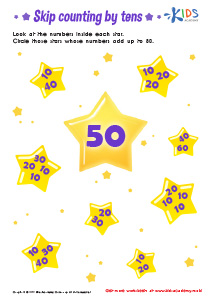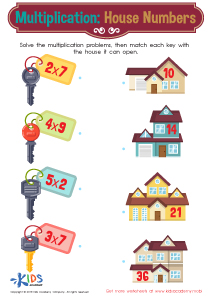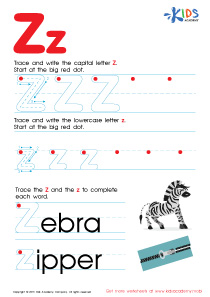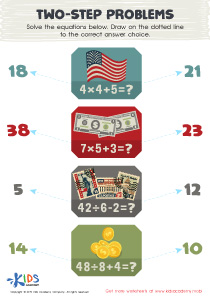Normal Addition Story Problems (#'s 1-5) Quizzes for 4-Year-Olds
1 results
1 filtered results
Clear all filters1 filtered results
-
From - To
Dive into a world of fun and learning with our Normal Addition Story Problems (#'s 1-5) designed specifically for 4-Year-Olds! These interactive assessment quizzes are the perfect way to introduce your child to the basics of addition through engaging story problems. Watch as your child navigates through the adventures of numbers, adding up elements from the stories, and discovering the joys of mathematics. Each quiz is thoughtfully crafted to check your child's understanding while providing immediate feedback to encourage and guide them through their learning journey. Start your child off on the right foot with these captivating addition story problems.
Understanding the fundamentals of mathematics is crucial for young learners, and one effective way to introduce these concepts is through "Normal Addition Story Problems (#'s 1-5) for 4-Year-Olds." This unique approach to teaching addition combines storytelling with problem-solving, making it an enjoyable and educational experience for children in their early years of learning.
At the age of 4, children are at a developmental stage where they are beginning to understand the world around them in more complex ways. Their cognitive abilities are expanding rapidly, and they are developing the skills necessary to solve problems, recognize patterns, and understand basic mathematical concepts. This is the perfect time to introduce them to the concept of addition in a way that is engaging and relatable. The Normal Addition Story Problems (#'s 1-5) for 4-Year-Olds does just that by weaving mathematical problems into the fabric of simple, captivating stories that appeal to the imagination of young children.
One of the key benefits of using story problems for teaching addition is that it contextualizes mathematical concepts, making them more understandable and relevant to everyday life. Children learn not only how to count and add numbers but also how to apply these skills in real-world scenarios. For example, a story problem might involve adding the number of apples on one tree to the number of apples on another tree, helping children visualize the process of addition and understand its practical applications.
Moreover, Normal Addition Story Problems (#'s 1-5) for 4-Year-Olds are designed to be interactive, encouraging children to actively participate in the learning process. This interactivity boosts engagement, as children become excited to find out what happens next in the story and are motivated to solve the problems to progress through the narrative. This form of active learning is highly effective, as it promotes critical thinking and problem-solving skills, laying a strong foundation for future learning in mathematics and other subjects.
These story problems are also beneficial for developing language and reading skills. As children read through the stories or listen to someone else read them, they encounter new words and phrases, expanding their vocabulary and improving their comprehension skills. This integration of mathematics and language arts makes Normal Addition Story Problems (#'s 1-5) for 4-Year-Olds a holistic educational tool.
In addition to fostering academic skills, these story problems help children develop perseverance and resilience. Not every problem will be easy to solve on the first try, and children will learn that it's okay to make mistakes and try again. This teaches them valuable life skills such as patience, determination, and the importance of practice.
In conclusion, Normal Addition Story Problems (#'s 1-5) for 4-Year-Olds are an invaluable resource for introducing young learners to the world of mathematics. By combining engaging stories with interactive problem-solving, these quizzes make learning fun and effective, helping children develop a range of cognitive, linguistic, and social skills. They provide a strong foundation for future academic success and a lifelong love of learning.













